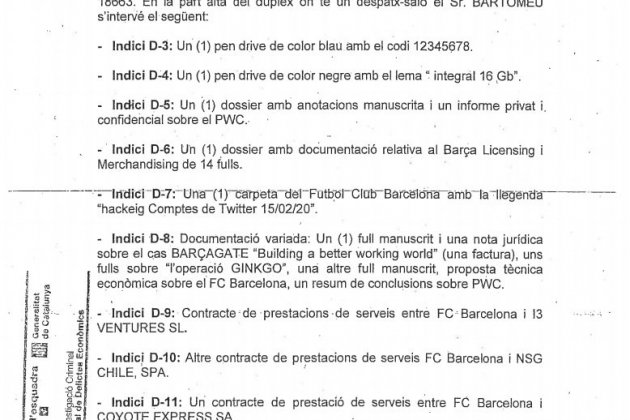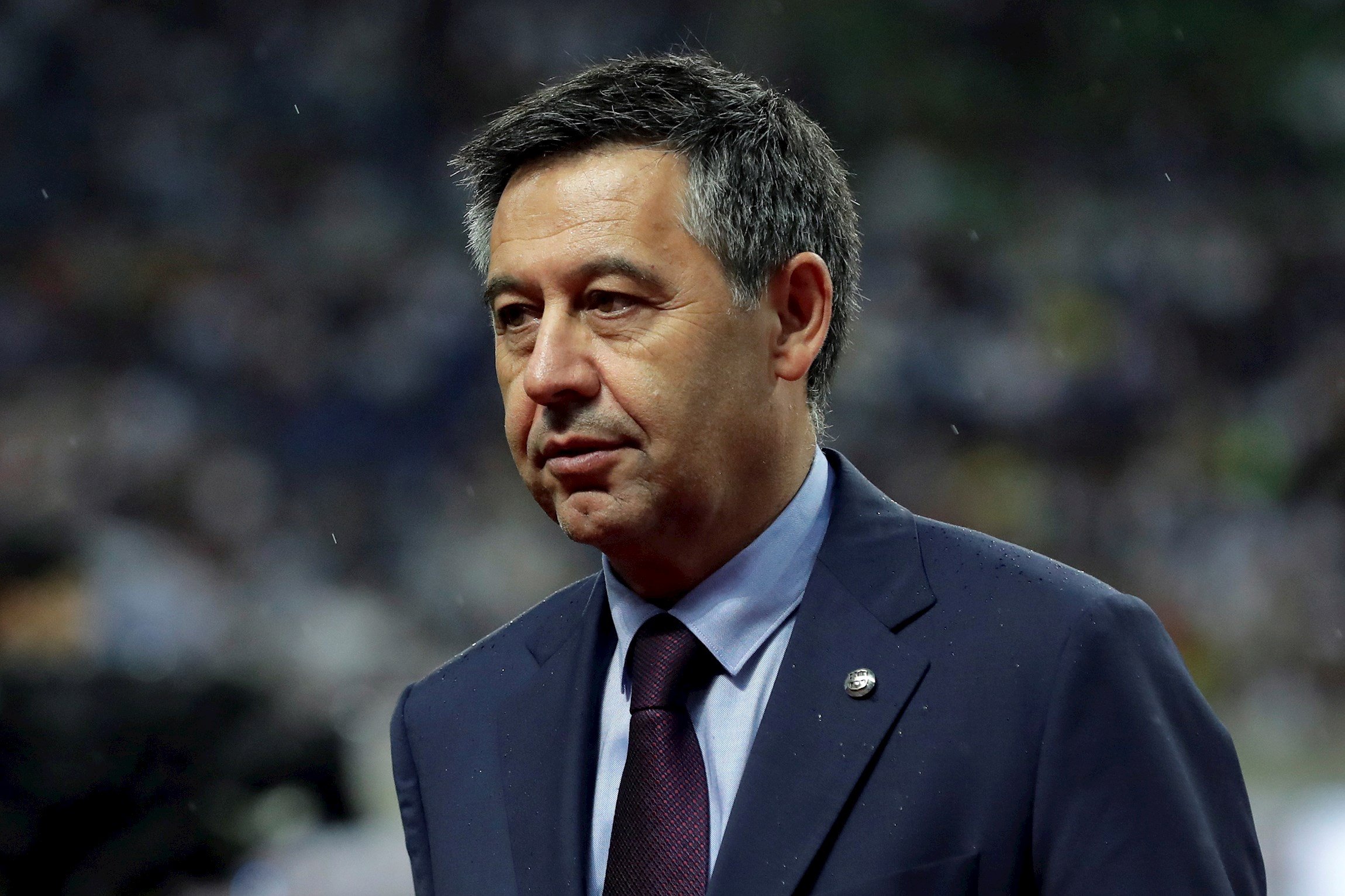On Monday, March 1st, at 8:30am, the Catalan police ring the doorbell of Josep Maria Bartomeu's home. His father answers it. The man they are seeking, the former president of FC Barcelona football club, is inside with his mother when the four Mossos d'Esquadra officers and a court clerk show up. It is a crucial morning for the case known as Barçagate, in which the club is alleged to have hired media companies to create accounts defaming some of FC Barcelona's own players, opponents of the Bartomeu board and even politicians.
Until Bartomeu's lawyer arrives, the police confiscate the first relevant items: two Samsung mobile phones, one of them with two SIM cards for two different numbers.
At 9:30am, lawyer José Antonio Henández enters the house and a search begins in the former Barça president's office, a lounge on the top floor of the duplex where he lives. Here the police find contracts that Bartomeu never handed to the police, and which were not turned over to the Mossos d'Esquadra in documentation demands made previously during the investigation. They find contracts with several companies: I3 Ventures S.L., NSG Chile SPA, Coyote Express S.A., Futuric S.A. and Ituruguay S.A. These are all service contracts made with FC Barcelona, and paid for with club money.

In the office they also find a handwritten sheet with a legal note on the Barçagate affair and an invoice, as well as a dossier with the summary of conclusions by consultant PWC, which carried out an audit, another dossier on merchandising and a folder with the inscription "Hacking twitter accounts 15/02/2020".
Also among the documentation that the Mossos find in Josep Maria Bartomeu's house is a dossier on the "operation Ginkgo", which could be another case linked to Barça whose confidential status is still maintained by the courts and which is not mentioned elsewhere in police reports.
Police also take Bartomeu's laptop and finish searching his home at 11:10am. In less than two hours they have found what they had been seeking for months. No-one had handed the documents over voluntarily despite police demands.
The Mossos state in their report that they have been requesting documentation for four months and that in November they finally received a folder on the company Nicestream with much of the evidence they asked for. But there was still a lack of documentation, which they were unable to obtain until the searches were carried out at the defendants' homes, as well as at the companies investigated and at the offices of Futbol Club Barcelona.
Bartomeu's silence
After the search, Bartomeu left his home under arrest and was taken to the Mossos station in the city's Les Corts district, where he spent the night. The former Barça president gave no explanation about what was found in his house or about the Barçagate case. He exercised his right to remain silent both at the police station and before the Barcelona investigating judge, court 13, who is handling the case. He is now at large, but facing charges, and may be required to make further statements at any time as the investigation progresses.
With the confidential parts of the case, lawyers recommend not speaking to police until they know what their clients are accused of. Anything they say could be used against them or could contradict what other defendants and witnesses might explain.
The Mossos d'Esquadra took advantage of the searches this Monday to question Barça employees and those of the companies contracted to monitor social media. And that put Bartomeu's defence strategy at risk.
Once the whole of the case can be studied, the legal options open to the ex-president of the Barça club will start to emerge. A key element seems to be the involvement of Jaume Masferrer, his right hand man at the club, and who has been accused of being the one who pulled the strings in this affair.

